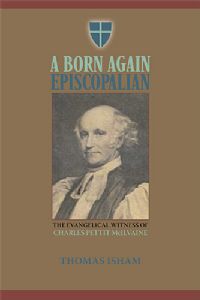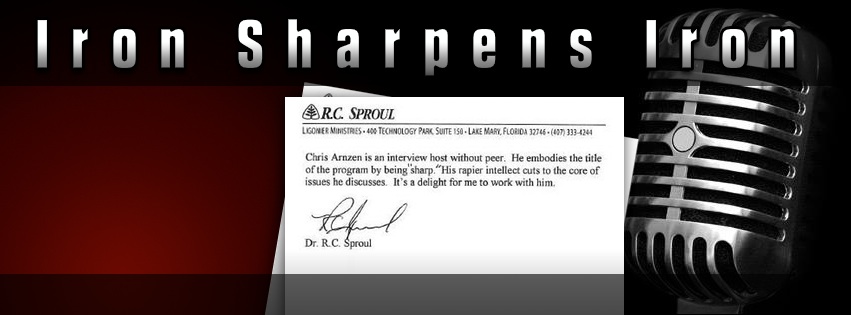




 |
|||||
 |
A BORN AGAIN EPISCOPALIAN: The Evangelical Witness of Charles Pettit McIlvaine
Thomas Garrett Isham![]()
"Charles Pettit McIlvaine, who lived from 1799-1873, embodied the evangelical creed of the nineteenth century. A clear-thinking, intellectually rigorous Episcopalian, he exemplified the deep emotional currents of revival and rebirth, of the 'conviction of sin,' of the need to be born again into new life. An aristocrat by birth and bearing and a bishop by consecration of the Episcopal Church, he knew himself to be a common sinner in God's sight, as much in need of rescue as the folk to whom he ministered." - from the Author's Preface![]()
"This valuable work on the great Victorian Evangelical bishop of Ohio brings to life the story of an eminent theologian, revivalist and churchman. McIlvaine ought to be better known in our day. It is a great omission among Episcopalians in North America that he is not. By his many works and contributions he speaks today." - The Late Rev. Dr. Peter Toon, author of 'The End of Liberal Theology' and former president of the Prayer Book Society of the U. S. A.![]()
"Bishop Charles Pettit McIlvaine deserves to be far better known among 21st century North American Anglicans. Thomas Isham's biography is a significant contribution to understanding the 19th century roots of contemporary Anglican witness and resurgence." - The Most Reverend Robert W. Duncan, Jr., Archbishop of the Anglican Church in North America![]()
"A very welcome biography of an influential evangelical Episcopalian leader. Isham's study is accessible and well researched; it deserves a wide audience." - Gillis J. Harp, author of Brahmin Prophet: Phillips Brooks and the Path of Liberal Protestantism![]()
TABLE OF CONTENTS![]()
Preface![]()
Introduction![]()
1. Man and Mission![]()
2. The Divided Self![]()
3. Birth of a Controversialist![]()
4. Meaning It![]()
5. The Revivalist![]()
6. Confuting the Tractarians![]()
7. Refuting the Rationalists![]()
8. Social Issues![]()
9. Churchman![]()
10. Facing Death![]()
Afterword: McIlvaine's Relevance for Today![]()
Appendix: Charlotte Elliott's "Just as I Am"![]()
![]()
NEW SGCB![]()
SGCB OVERSTOCK![]()
FEATURED AUTHOR CPMB SGCB12![]()
NOW AVAILABLE TO SHIP![]() SGCB Price: $13.95 (list price $25.00)
SGCB Price: $13.95 (list price $25.00)
NEARLY 50% DISCOUNT![]()
Add a copy of 'TRUTH & LIFE: 22 Christ-Centered Sermons' by Mc'Ilvaine![]() SGCB Price: $30.00 (list price $60.00)
SGCB Price: $30.00 (list price $60.00)
50% Discount When Ordering Both Titles![]()
Additional Information
• Author's Preface
Charles Pettit McIlvaine, who lived from 1799-1873, embodied the evangelical creed of the nineteenth century. A clear-thinking, intellectually rigorous Episcopalian, he exemplified the deep emotional currents of revival and rebirth, of the "conviction of sin," of the need to be born again into new life. An aristocrat by birth and bearing and a bishop by consecration of the Episcopal Church, he knew himself to be a common sinner in Godís sight, as much in need of rescue as the folk to whom he ministered.
McIlvaine united character and creed in a remarkable witness. Both his strengths and his weaknesses equipped him to be a peerless propagator of evangelical faith, even as they alerted him to the spiritual medicine he himself needed. "Just as I Am" was his favorite hymn and it summed up his faith. He had no illusions about himself, as an individual or as a member of what he held to be a fallen race. He believed that "all is grace" and that self-rescue was out of the question, for him or anyone else. He threw himself "on the mercies," a sick soul in need of healing, a divided soul in need of unification, a sinning soul in need of forgiveness.
McIlvaine deserves to be better known. He deserves to be known for his doctrine, for his character, and for the compelling manner in which his doctrine and character expressed the evangelical paradigm in a liturgical church. To be sure, he may appear at first glance to be of little current interest. The movement he led so ably ended in apparent failure; his name is largely forgotten; his evangelical religion is little heeded - indeed, little known until recently - within The Episcopal Church. Yet he is not in fact the ambassador of a failed and forgotten movement. Rather, he may be heard as the perennial voice of a tradition that finds rebirth again and again in the ongoing life of the Christian faith.
As preacher, polemicist, and bishop, McIlvaine vigorously critiqued the themes and thoughts that inspired emerging trends in nineteenth-century churchmanship. A prolific writer, he smote hip and thigh the advocates of the Anglo-Catholic movement, kept traditional High Churchmen off balance, and challenged the scholarship of the new schools of biblical criticism, schools which drew inspiration from German academic theologians and their English followers. In doing so, he fashioned a cogent statement of what many conservative Christians to this day regard as the enduring verities.
To be sure, McIlvaine witnessed ardently for a movement that has been largely forgotten by the intellectual elites of the Protestant mainstream. In the case of The Episcopal Church of the United States, it is a movement that was eclipsed by the Anglo-Catholic (or Ritualist) and liberal theologies that were in the ascendancy in his day and that continue in their evolved forms to dominate church discourse, though not without challenge. Such neglect needs to be addressed. At a time when there is a resurgent evangelical movement in The Episcopal Church, as well as in much of the worldwide Anglican Communion, thoughtful Christians - both evangelical and otherwise - might wish to learn about McIlvaine and his work and their possible relevance for today. He raised and answered in a distinctly evangelical way perennial questions of spiritual and theological moment.
The following book is the first since the nineteenth century devoted solely to McIlvaine and his witness.
